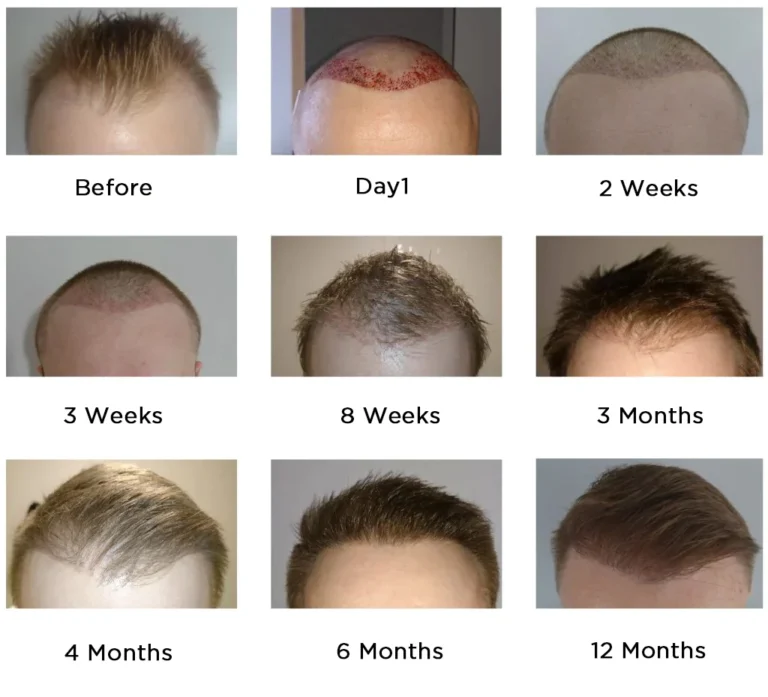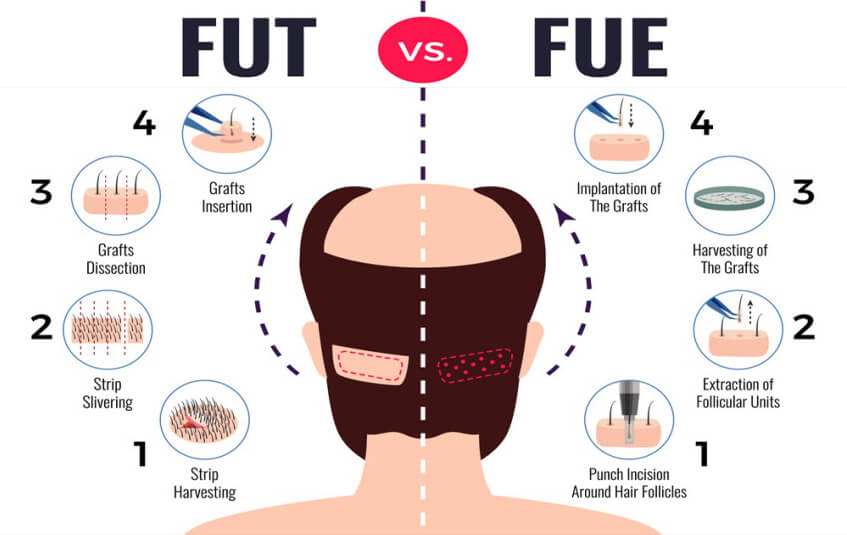Get personalized Consultation!
HAIR TRANSPLANTATION IN BENGALURU
It is true that hair loss is a humiliating affliction. Even after attempting a variety of hair loss remedies, baldness remains a problem for many individuals for a variety of reasons, such as stress, hormone imbalances, and genetics. In the modern, highly developed realm of medicine, permanent hair loss is treatable.
The most successful method for reversing the stage of total or partial baldness is hair transplantation. With reference to this method, helpful information has been taken from a variety of skin and hair specialists, including Dr. Jigisha N Jalu and Dr. Roshan Kumar.B, who are well-known for Hair Transplant in Bengaluru with over 8 years of experience as specialists. This blog will provide a comprehensive guidance on hair transplantation based on those observations. Thus, keep reading this article.
What is Hair Transplantation
It might be helpful to read about “What is Hair Transplant?” before delving into the procedure or price. And now for it:
A surgical hair restoration treatment is called a hair transplant. The purpose of it is to move hair from a region of the candidate’s body where hair loss is occurring—typically the back or sides of the head. There are two commonly used ways for performing hair transplants. They are listed below:
- Follicular Unit Transplantation (FUT)
- Follicular Unit Extraction (FUE):

Follicular Unit Transplantation (FUT)
This hair transplant procedure is traditionally invasive. This technique makes use of a skin strip that has hair follicles in it. The skin from the donor region—typically the back of the scalp—is surgically removed by the surgeon, who then dissects it. The recipient area, where hair is receding or thinning, is then transplanted with follicles.
Follicular Unit Extraction (FUE)
Advanced minimally invasive hair restoration is achieved with FUE. Individual hair follicles are taken from the donor area and transplanted into the recipient area based on the needs of the treatment. Comparing this method to FUT, it gives a faster recovery period and produces less scarring.

Hair Transplant Cost in Bangalore
The cost of having hair transplants, whether in Bangalore or elsewhere, varies. Nonetheless, there are other factors contributing to this difference, such as:
- The general health of an individual
- Techniques for Hair Transplantation
- The expertise and experience of doctors
- Technical personnel
- The location of the clinic
- Anticipations and endeavors to attain the intended outcome
Why Should You Get a Hair Transplant in Bengaluru?
Bangalore is home to important companies in the healthcare industry in addition to being a center for IT. This city offers numerous advantages to select it for hair transplantation. Several strong arguments supporting this concern include the following:
Elite Clinics: There are a lot of revolutionary clinics in this city that employ highly qualified doctors and have the newest technology.
Expert Medical Professionals: Years of experience in carrying out effective hair restoration treatments are offered by numerous well-known hair transplant surgeons and top dermatologists in Bangalore.
Cost-effectiveness: Although hair transplant costs might vary, this city often has reasonable costs when compared to several western nations. Bangalore is a popular destination for medical tourists because of its reasonably priced hair transplants.
High-quality medical care: This IT hub is renowned for offering top-notch medical treatment and friendly service, making sure patients have a relaxing and stress-free experience.
Selecting the Right Clinic
One of the most important steps is choosing the best hair transplantation or skin clinic in Bengaluru. The following checklist can assist you in making an informed choice when selecting the best skin clinic in this city:
Explore: Start by looking into Bangalore clinics, reading reviews, and collecting recommendations from trustworthy individuals.
Certification: A clinic should adhere to strict safety and hygienic regulations and receive recognition by the relevant medical authorities.
Surgeon’s Expertise: Qualifications of the Surgeon, Examine the surgeon’s qualifications, background, and track record. Look for surgeons who have completed a board exam and who specialize in hair transplant surgery.
Conversation: Schedule a consultation appointment with the surgeon to discuss your goals, health history, and potential treatment options. Reputable clinics will provide individualized treatment plans and thorough evaluations.
Discussion: Testimonies from patients, collect patient feedback and before-and-after photos to assess the clinic’s performance.
The Process of Hair Transplantation
It’s time to get ready for the hair transplant operation when the clinic and surgeon have been decided upon. Here is an easy-to-follow guide on how to get ready for a successful hair transplant procedure in Bengaluru:
Planning and Consultation: Your surgeon will assess the pattern of your hair loss and discuss your goals with you. They will create a customized treatment plan that details the number of grafts required and the expected results.
Pre-Operative Guidelines: Before the treatment, you will receive comprehensive information on how to prepare, including any dietary restrictions or prescription modifications.
Anesthesia: Local anesthetic is used to numb the donor and recipient areas to minimize discomfort during the procedure.
Graft Removal: In FUT, a donor skin strip is divided into individual grafts and subsequently extracted. Every single follicle is extracted one at a time during FUE using a specialist instrument.
Graft position: The surgeon gently implants the excised grafts into tiny incisions in the recipient area to ensure a natural hairline and appropriate density.
Follow-Up Medical Care: You will receive comprehensive instructions for post-operative care following the procedure, which will cover how to manage swelling, protect the grafts, and prevent infection.

Results and Recovery
Individual recovery times for hair transplants can vary, however the following is a standard timeline:
Quick Post-Operative: You might experience some scabbing, discomfort, and edema in the recipient area. These negative effects usually go away in a few days.
Initial Two Weeks: Most people are able to return to their regular activities and jobs in a week or two. Steers clear of strenuous exercise and other activities that could damage the grafts.
Hair Developing: Newly transplanted hair usually starts to fall out in the first few weeks. New hair usually begins to grow after several months.
Final results: After 12 to 18 months, the full effects usually show as the recently transplanted hair grows and thickens.
Conclusion
Hair transplantation has the potential to change a person’s life. It might provide a long-term remedy for hair loss. With the best dermatologist in Bangalore, cutting edge technology, and recognized medical knowledge.
When you decide on this city for the greatest hair restoration experience, you are in good hands. To get the finest results, have a fuller head of hair, and boost your confidence, never forget to do your homework, speak with licensed medical professionals, and carefully adhere to post-operative care guidelines. One such dermatologist you can see for hair transplantation as well as other skin issues is Vida Skin and Hair Transplant Clinic.
Frequently Asked Questions!
The cost of a hair transplant in Bengaluru can vary based on factors like the clinic reputation, surgeon experience, and the number of grafts needed.
It’s essential to consult with a qualified surgeon for a personalized quote.
Recovery time after a hair transplant varies, but most people can resume their normal activities within a week. Full recovery may take a few weeks, and patients are advised to follow post-operative care instructions provided by their surgeon to ensure optimal healing.
Like any surgical procedure, hair transplantation in Bengaluru carries some risks. Common side effects include swelling and temporary discomfort. However, serious complications are rare. It’s crucial to choose a qualified and experienced surgeon and follow pre and post-operative care guidelines to minimize risks.
FUE (Follicular Unit Extraction) and FUT (Follicular Unit Transplantation) are two common hair transplant techniques in Bengaluru. FUE involves extracting individual hair follicles, while FUT involves removing a strip of tissue with hair follicles. FUE usually results in less scarring and a quicker recovery, but the choice depends on individual factors and preferences.
Patience is key when it comes to hair transplant results. While some growth may be visible within a few months, the final results typically take 9 to 12 months as the transplanted hair goes through natural growth cycles. It’s essential to follow post-operative care instructions and attend follow-up appointments for the best outcomes.
During the hair transplant procedure, local anesthesia is used to minimize discomfort. Patients may feel some pressure or mild sensations, but they should not experience significant pain. After the procedure, any discomfort can usually be managed with prescribed medications.
Individuals with certain medical conditions or taking specific medications may still be eligible for a hair transplant. However, it’s crucial to inform the surgeon about any health issues or medications during the consultation to ensure a safe and effective procedure.
Yes, the results of a hair transplant are generally permanent. The transplanted hair is resistant to the hormone DHT, which is responsible for hair loss. However, it’s essential to maintain a healthy lifestyle and follow post-operative care instructions to ensure the longevity of the results.
Yes, women can undergo hair transplantation. Female pattern baldness or other hair loss conditions can be addressed through transplantation. The suitability of the procedure depends on individual factors, and a consultation with a qualified surgeon is necessary to determine the best course of action.
Patients are typically advised to wait for a specific period before washing their hair after a transplant. This period varies but is usually within the first few days to a week. The surgeon will provide detailed post-operative care instructions, including when and how to wash the hair safely.